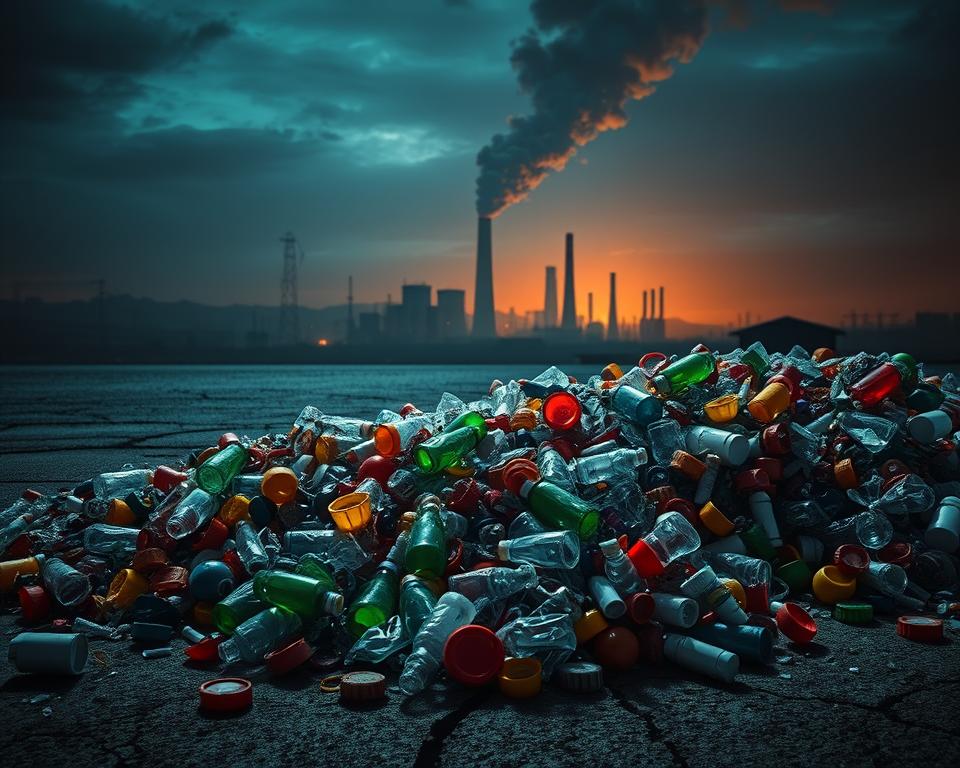Advertisements
Curiosities tips They give you quick ideas for conversation and better decision-making without complicating things. Did you know that a flamingo isn't born pink and that the Eiffel Tower can grow almost 15 cm in the summer?
In 2025 these data They continue to help you plan routes, connect with other people and take care of your body and the environment while traveling. Here you'll find real-life, up-to-date examples that work for commutes, dinners, and guided tours.
I give you truthful and useful information so you can use anecdotes without seeming like a walking encyclopedia. You'll see basic science about sleep, stress, and physical activity presented in an accessible way, without promising universal solutions.
Invitation: Check the facts, respect local regulations, and protect wildlife while you explore. Read on to find micro-habits that make it easier to organize your backpack, choose responsible packaging, and make the most of each stop.
Introduction: Why Curiosities' tips will help you travel and live better in 2025
When you travel today, a few data Well selected can save time and improve the quality from each stop.
Context 2025 in the United States: mobility, technology and sustainability
By 2025, mapping tools, mobile payments, and visual verification will be more common. Google Images was born from a wave of viral searches; it's an example of how digital trends emerge and how you can verify information today.
Many parks and museums promote low-waste practices. Check out the system recycling location and bring reusable alternatives. Planning water and breaks helps your body and those around you.
How to use trivia to plan routes, break the ice, and make decisions
Reserve windows of 15 minutes Before each trip, check the weather, schedules, and transportation. Create a note with five examples per city for offline use.
- Use quick facts about monuments to start conversations with others. people.
- Includes water reminders and breaks every few hours to take care of your body.
- Check trends with reverse image search before sharing.
Curiosities that impress and serve as icebreakers on your travels
Carry short stories in your backpack that spark smiles and conversations at any stop. These short pieces work well in cafes, on trains, and on tours because they're easy to retell and remember.
Real examples that usually surprise: flamingos are born gray and their pink color appears due to their diet rich in carotene; and octopuses have three hearts, a perfect detail to talk about body marine.
- Take 3–5 data clever: birds like flamingos and facts about octopuses often raise questions.
- In the city, he mentions that the Eiffel Tower can grow ~15 cm in summer and that Big Ben stopped at 10:07 p.m. due to a heat wave.
- Use the data of the Vatican as the smallest country and name the guy of regional Kit-Kat when you talk about Japan in markets.
In astronomical routes you can comment that from the space You see the sunrise and sunset about 15 times a day in orbit. Also have a card paper with 10 ideas; so you don't depend on your phone.
Remember: These stories serve to connect with others people, not to impress. If anyone asks for more, offer sources or suggest checking with museums and official websites.
Well-being on the road: stress, sleep, and rest with a scientific basis
Traveling involves moving body and mind: small habits make a difference. Here you'll find basic evidence and easy practices to take care of your health on the go without complicating things.
Stress and the immune system
Chronic stress raises cortisol and can weaken the immune system. Practicing short meditations, going for walks, or doing recreational activities helps. reduce stress realistically.
Quality sleep
Aim for 7–8 hours Whenever you can, it helps with physical and mental recovery. Avoid screens at least an hour before bed and keep your phone out of reach to improve sleep hygiene.
Physical activity in minutes
Moving activates the body and the brainThree blocks of 10 minutes Walking adds up to 30 minutes a day and improves mood and concentration without the need for a gym.
- Identify signs of stress and adjust your schedule to reduce the load.
- Set aside an hour for digital disconnection before bed.
- Compensate for time zone changes with short naps and planning hours of sleep.
- Use guided breathing in queues; it calms the brain without drawing attention to itself.
- Bring headphones and an eye mask to protect your sleep on flights or in hostels.
Remember: This is for educational purposes only; if you have medical conditions, consult a health professional before changing your routine.
Water, food and smart hydration
Keep A simple routine for drinking and eating while traveling. Hydration helps your skin stay more supple and your body perform better in warmer climates.
Reusable bottles and cups: how much to drink and when
Carry a reusable bottle and mark times to sip. Try to drink every 1–2 hours, adjusting based on effort and temperature.
- Alternate water with electrolyte drinks on long days or very hot days.
- Use measuring cups in accommodations to calculate how much you drink.
- Hydrate before a flight and upon landing: a dry cabin requires extra attention.
- Keep the bottle in a lightweight bag along with a snack to avoid last-minute purchases.
Food and Skin: Practical Guidelines for Hot Climates
Include water-rich foods, such as fruits and vegetables, to support hydration and care for your skin. Prioritize moderate portions and fresh options to facilitate digestion and rest.
Observe Urine color is a simple indicator of your condition, looking for lighter shades without obsessing. Protect your skin with clothing, sunscreen, and sunscreen: drinking water helps, but it doesn't replace other measures.
Plastic, oil, and energy: small decisions with big impact
Your purchasing decisions influence the lives of birds and in the consumption of oilA quick gesture prevents damage and reduces emissions.

From packaging to nature: why cutting rings protects birds
Plastic rings that hold cans trap birds and mammals. Cut them before throwing them away and break the structure into small pieces.
Energy and light bulbs: watts, air, and usage time
Making a can consumes enough energy as to have a television on twice times for one hour. Switch to light bulbs LED and monitors the watts.
Turn off lights if you leave for more than 10–15 minutes and adjust the air conditioned to a comfortable range for short periods.
The hidden cost of cartons and how to choose glass or bulk purchases
Bricks are often difficult to recycle, and processing them requires energy. Prefer glass or buy in bulk when you can; glass is 100% recyclable and reusable.
- Check containers and plastic ring cutter.
- Fill your canteen with water drinkable and reduces waste many times a day.
- Order without cutlery or napkins paper extras like example of reduction.
Reduce, Reuse, Recycle: A Practical Guide for Home and Travel
Small gestures at home and on the road can reduce waste without complicating your schedule. Here are clear steps to take today, with easy-to-follow rules both at home and at work.
Reduce
Avoid disposables: carries a collapsible bag and orders drinks “without a straw.”
Turn off lights and unplug equipment at home and at work; this way you'll save energy and money.
Buy foods in bulk and choose large containers or glass to reduce oil and packaging.
Re-use
Use glass jars as containers for snacks on the go.
Write on both sides of the sheets and reuse bags several times.
Donate your computer or phone when you're no longer using it; you'll extend its useful life and help others.
Recycle well
Place empty, clean, and dry containers in the yellow container. Do not put bags with containers inside: insert the containers first and then the loose bag.
Fold cartons and bottles, cut plastic rings and remove debris.
On paper and cardboard, remove plastic, staples, and adhesives; don't bring grease-stained papers.
Glass: Separate bottles and jars, remove caps and sprayers; glass is 100% recyclable.
- Reduce extra bags and paper; bring your own bag and say "no straw."
- Fold containers, cut rings and clean up scraps before recycling.
- Short showers and turning off the taps when brushing your teeth to save water.
Amazing nature: birds, oceans, and plants you'll see on your routes
Observing the environment gives you surprising figures and reasons to respect the species you encounter. These data They help to value pollinators, cetaceans and flora without invading their home.
Bees, honey and pollination
To produce 1 kg of honey, bees must visit approximately 1,440,000 flowers. A worker bee can travel up to 40 km in its lifetime.
Respect hives and signs; share figures to assess their role in the lifespan of crops and plants.
Blue whale and sound on sea trips
A blue whale's heartbeat can be heard from over 3 km away, and its weight is around 130,000–150,000 kg; its heart can weigh up to 180 kg.
In water sound travels differently than in air. air. Keep your distance, be silent and follow the operator's rules so as not to disturb their body nor their behavior.
Plants and cultural finds
Look for striking species such as the skeleton flower (Diphylleia grayi) or the black sapote, famous for its chocolate flavor.
Don't pick flowers or seeds: use photos and notes to learn without damaging ecosystems.
- Take one bottle reusable and reduces waste while you watch.
- Use binoculars to identify birds and do not approach nests.
- Prefers viewing points and platforms; they are the space designed to minimize impact.
- Leave the place better than you found it: take your waste with you if there are no containers.
Technology and digital life: useful information for moving safely
A couple of tweaks to your phone can avoid problems and save time during the trip. You don't need to be an expert: protect your accounts and your privacy with simple steps.
Common passwords and best practices
Avoid obvious passwords like 123456 or “password”; they are weak and easy to guess.
Use long and unique combinations by system or service. Activate 2FA for email and banking before your trip.
Write down backup codes in a safe place and update devices before you leave.
From Google Images to social media: how trends emerge and how to verify them
Some features are born from viral spikes; one example was Google Images after the attention surrounding a dress in 2000.
Check data with reverse image search and check date and source.
- Limit your time on public Wi-Fi and don't access banking from open networks.
- Disable auto-connect and ask people from the hotel through the official network.
- Adjust the level privacy in map and photo apps and save local copies of reservations.
At home or at work: order, paper and energy without complications
A simple system for paper and energy It saves you time and a few dollars a month. Here are clear and easy steps to implement in both home as in your place of job.
Paper and cardboard: remove staples, shred and save energy
Separate the paper and clean cardboard. Remove plastic, staples, and adhesives before taking them to the container.
Folding and cutting up large boxes takes up less space and makes recycling easier. Recycling paper can save up to 85% of energy and about 62% of water in its cycle.
Place a note on the lid of the inner container: “clean paper only”This way, you avoid everyday mistakes and maintain order.
Low-consumption light bulbs, watts and minutes that add up at the end of the month
Change to light bulbs LED and check the watts per stay; prioritizes the most used rooms.
Turn off the lights if you go out for more than a few minutesThe habit adds up to energy savings each month and lowers bills.
- Use power strips with switches to cut off standby power.
- Maintain a visible schedule for washing machines and dishwashers if your rate allows.
- Check your recycling bags monthly and adjust the system if anything isn't working.
Curiosity tips for playing with friends and learning while traveling
Turn waiting and traveling into moments of laughter and learning with your group. These dynamics are quick, respectful, and designed to include everyone without interrupting others.
True or false and “fact of the day” mini-games for groups
Propose one "fact of the day" per person: each person has 1–2 minutes to share a short, interesting example. Rotate the order and leave room for short questions.
Play true or false in transportation: a simple statement, such as “Octopuses have three hearts”, and vote quickly. Keep the rounds to a few minutes so they don't get boring.
- Use your phone for collaborative notes with 10 items per destination; save them offline for when there's no signal.
- Design a photo + fact activity: everyone chooses a sign or plaque, takes a photo, and shares what they learned.
- Prepare paper cards with 20 quick questions; they're useful in lines and waiting, and they don't require a battery.
Adjust the intensity according to the context and avoid disturbing others in museums or on public transport. Use these dynamics to reduce stress social and encourage laughter, not competition.
At closingVote for your favorite curiosity of the day and record the best facts on paper or on your phone to review later.
Conclusion
Close each day on a practical note: Turn curiosities into doors to learning without imposing truths. Take stories that respect the nature and uses data only as an invitation to check its source.
Prioritize water, food fresh air and breaks for dream and rest; you body and your energy will thank you for it. At home and in job, separates paper clean, avoid plastic single use and changes to light bulbs LED to save energy.
Think about the whole cycle: reducing oil and waste protects the life and the nature. Respect local regulations, observe from a distance, and verify data before sharing. This way, each day and each time on the road it becomes lighter and more responsible.



